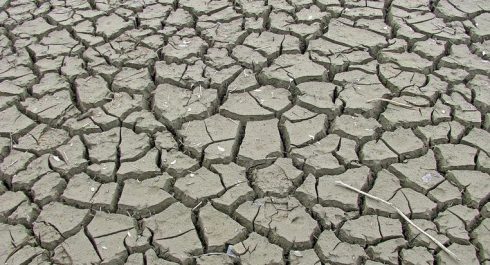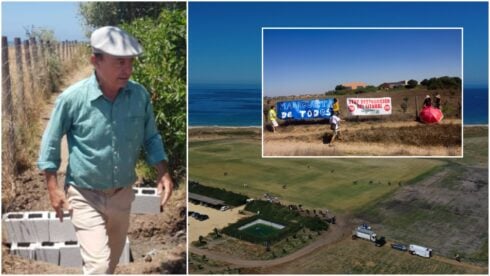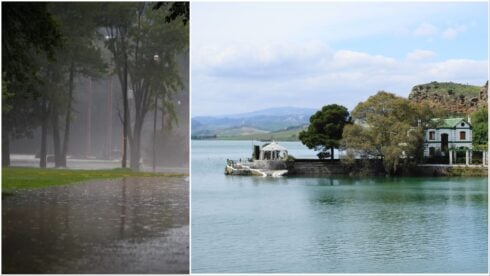THE IBERIAN PENINSULA is going through its driest period for 1,200 years, according to new research.
The majority of rain in Portugal and Spain falls in the winter months, but a high-pressure weather phenomenon known as the Azores high can block wet weather fronts which provide much needed rain.
Researchers from the Oceanographic Institution in the US said winters with ‘extremely large Azores highs’ have increased significantly.
Prior to 1850, Azores highs occurred at an average of one in every 10 winters.
Since 1980 however, this has risen to one in every four.
When they occur, they force the wet weather northwards, making downpours in the UK and Scandinavia far more likely.
The scientists said this increase was undeniably the result of the climate crisis, caused by increased carbon emissions from human activity.

Photo: RawPixel
Dr Caroline Ummenhofer who headed the research team, told the Guardian: “The number of extremely large Azores highs in the last 100 years is really unprecedented when you look at the previous 1,000 years.
“That has big implications because an extremely large Azores high means relatively dry conditions for the Iberian peninsula and the Mediterranean. We could also conclusively link this increase to anthropogenic emissions.”
Droughts and heatwaves are becoming more and more common on the peninsula and this May was the hottest on record in Spain.
Environmentalists say heatwaves are becoming 10 times more likely than they were before the effects of climate change were established.
READ MORE:
- Spain’s Axarquia to receive water from the western Costa del Sol to battle ‘exceptional drought’ despite recent rains
- It never rains but it pours: Giles sees the Costa del Sol drought break first hand
- Spain to convene Drought Committee ‘in next few days’
Click here to read more Spain News from The Olive Press.








